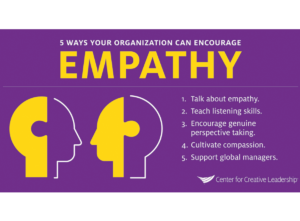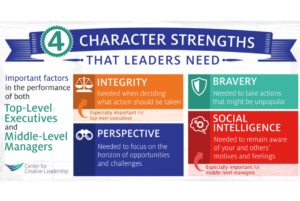Leadership is complex. We’ve all experienced good and bad leadership in one context or another, but it can be tricky to determine the qualities that a good leader or manager needs to have.
Anyone can sit there and give out commands, but effective leadership goes much further. It involves being a proactive problem solver, possessing a vision, having integrity, honesty, and inspiring others.
As Steve Jobs once put it, ‘’Management is about persuading people to do things they do not want to do, while leadership is about inspiring people to do things they never thought they could’’.
With this quote in mind, let’s take a look at 13 of the most important leadership qualities that every effective manager needs to have.
What are leadership qualities every manager must have?
#1 Passion
We’ve all known a leader or manager who loves what they do. Whether it be a boss, a manager, or the captain of a sports team, passion is infectious, and those serving under a passionate leader are more likely to be productive in their work and go the extra mile.
Passion is about vision, excitement, energy, and enthusiasm. If a manager is enthusiastic, excited, and has a strong vision, they’ll inspire others to join and identify with this vision.
For example, let’s say a freelance email marketer decides to set up a digital marketing agency and is looking to hire their first employee and sets up an interview with a candidate.
In the interview, the freelancer setting up the agency passionately describes their vision for the company and describes in detail where they want the agency and the candidate to be one year from now.
Excited by this vision, the prospective employee is eager to work hard for the company should they get the job and is impressed by the owner’s passion for the business.
The candidate goes to another interview with a rival company for the same role, but during the interview, the prospective employer looks bored, uninterested, and doesn’t seem to have any sense of excitement or passion when they’re talking about the role or how they see the company progressing in the next year.
Which company do you think the candidate will choose if offered the choice? The answer should be pretty obvious. A manager or leader’s passion for their business or for what they’re doing can be the difference between an employee enjoying or not enjoying their role.
#2 Empathy
Empathy is about having the ability to understand another person’s experience and perspective and imagining yourself in another person’s place.
Leaders and managers who can empathize with others can connect with their employees on a deeper level, encourage open communication, and build long-lasting positive professional relationships.
Some methods managers can use to become more empathetic include:
- Being fully present in conversation when speaking to an employee, coworker, or any other person.
- Taking a personal interest in the lives of those who work for them.
- Showing patience with a team member, particularly with new hires or staff learning a new skill or process.
- Giving team members and employees regular feedback on how they are progressing and performing through regular professional development sessions.

Empathy and compassion for your employees is becoming a thing of the past as we move into a remote-friendly work environment. This is because with the benefits of remote work comes the cons. To deal with this effectively, you could consider using a service like Nectar, an employee recognition software that works well for remote companies like eCommerce stores or online magazines.
This service allows you to reward great employees with a point system, set birthdays and work anniversaries for everyone so you never miss out on an event, offer local discounts to employees for everything from food to water parks, and challenge your employees to different tasks. It is one of the most innovative approaches to boosting productivity and team morale.

Showing your employees that they matter does not even necessarily need a software- something as simple as an appreciation post can make their day. For example, the personal injury law firm headed by Attorney Brian White gives their employees recognition through social media posts that bring attention to their efforts.

#3 Patience
Whether it’s personally or professionally, showing and exhibiting patience is the key to navigating many of life’s challenges.
In the professional world, managers will come across situations almost daily where patience is required,
For example, imagine a scenario where a law firm hires a new employee — the employee’s resume looks good on paper, and their prior experience matches what the hiring company is looking for, and they have high expectations.
A couple of weeks into the new role, the employee is struggling to understand all of the new processes that the job requires, and so far, their performance hasn’t been up to the required standard.
In this situation, the employee’s manager has two choices:
- Scold the employee for not performing as expected in the role.
- Take the time to discuss with the new employee how they’re finding the new role to uncover the challenges they’re facing.
By taking the second approach, the new hire and their boss can develop a plan to address the issues affecting the employee’s performance and move forward in a proactive, positive fashion.
Effective managers and leaders can recognize situations where patience is necessary to determine a positive long-term outcome.
#4 Determination
Determination is needed to achieve any goal, and it’s one of the key qualities that separates an effective manager from an ineffective one.
A determined leader inspires confidence in others and isn’t afraid to work hard to achieve what is required. While for some people, determination comes naturally to them, this won’t be the case for everyone, and it’s a skill that can be developed.
If you find yourself in a leadership position and you’re struggling to find determination, try focusing on some of these steps:
#1 Good leaders set priorities and deadlines.
In his book ‘Extreme Ownership’ ex US-Navy seal, Jocko Willink describes how one of the most important elements of strong leadership is the ability to set priorities and organize tasks effectively. He names this ability ‘prioritize and execute’.
‘’To implement, prioritize and execute in any business, team, or organization, a leader must: evaluate the highest priority problem, layout in simple, clear, and concise terms the highest priority effort for your team’’.
An effective leader needs to be able to effectively decide which tasks are the highest priority and then delegate these tasks accordingly. Part of delegating these tasks will involve setting achievable deadlines and deducing a plan to meet these deadlines.
If you are in a leadership position and feel overwhelmed, list out all the tasks you need to complete, rank them from the least important to the most important, and then start taking steps to accomplish the most important task.
The physical act of writing down each task will help you clarify your thoughts and come up with a plan for what needs to be done.

#2 A good leader has a strong vision.
An effective leader needs to have a vision in mind for what they want to achieve. A leader with a vision will be able to clearly communicate this vision with those around them and inspire others to come together to make their vision a reality.
For some tips on how to develop your strategic vision, can check out these tips from Dice here.
#5 Humility
Like empathy, humility helps a leader relate to their employees while staying open-minded. A humble leader gives credit to others when it’s deserved, trusts employees to do their job without micromanaging them, and realizes that every employee is important in a company/department’s success.
Humble leaders foster a positive environment that promotes development and growth for their employees by prioritizing learning and development.

#6 Transparency
A transparent leader is one who can build trust with their employees by being open and honest with them. Transparent leadership means keeping employees in the loop with whatever’s happening in a situation, no matter if it’s good or bad.
For example, let’s say an employee wants a raise at work to start saving some money. To get the raise, there are extra responsibilities and duties that the employee needs to take on.
In this scenario, a good manager should explain to the employee what they need to do to get the raise; this approach gives transparency to the employee and also improves the employee’s trust in their manager.
#7 Clear Communication
Leaders must be able to communicate with those around them clearly. Communication is key to achieving the goals an organization tasks a leader with. Clear communication helps a leader’s employees understand what’s required and the expected standards.
This can be as simple as using a calendar app to keep a track of where everyone is in terms of reaching their goals and completing tasks. One of the most important jobs a leader has is to make sure everyone is on the same page.
Leaders can work on their communication skills by prioritizing the following:
- Being clear and concise in the language they use – this can involve avoiding technical jargon to reduce the risk of misunderstanding and miscommunication.
- Matching actions with words – a leader who keeps their word, follows through on their promises, and delivers on their word will inspire confidence among staff and foster a positive work environment among their staff.
- Facilitate open conversation – leader/employee communication should be a two-way street. Leaders need to do everything they can to make sure their employees feel comfortable communicating with them.
#8 Trustworthiness
A lot of the traits we’ve spoken about so far all play into a leader’s sense of trustworthiness. A trustworthy leader is one that’s respected by employees and respected by direct reports.
Employees that trust their manager are more likely to produce and deliver high-quality work and go the extra mile for an organization when the time requires.
A sense of trustworthiness will also help to create more loyal employees and lower employee turnover. Managers should try to keep their word to employees, match their actions with words and trust their employees to take on projects and make decisions.
#9 Level Headedness
Being level-headed and remaining calm under pressure should be a goal for every leader. In any professional setting, there are always times when things get stressful.
This often happens when a team or organization has deadlines or targets to meet. In stressful situations, it’s important that a manager has the ability to keep their cool and determine steps to resolve the situation.
#10 Integrity
Integrity in leadership refers to being honest, trustworthy and reliable. Leaders or managers with integrity keep their word, admit their mistakes, provide honest and direct feedback to their staff, and aren’t afraid to make tough decisions.
Leaders with integrity usually follow company policies, use company time and resources effectively, and show respect to co-workers and direct reports.
Employees want to work for employers and leaders that are ethical, honest, and transparent in their communication.

#11 Self-Confidence
Self-confidence can be defined as a feeling of trust in one’s abilities, qualities, and judgment. Leaders must have self-confidence in themselves, their words, their messaging, and their abilities to adequately deal with challenging situations and adapt to new circumstances that come their way.
If a leader shows qualities and traits of self-confidence, these traits will rub off on those around them. This is particularly important if a leader is running a high-level organization such as a law firm or a multinational company or if a leader or manager is managing a team or has considerable authority over other employees.
#12 Responsibility
Every leadership position, regardless of the industry, carries an element of responsibility. In the world of work, leaders may be in charge of an entire organization, a department, a team, or just themselves.
Leadership strategist Jack Zenger states that those who feel a strong sense of responsibility in the workplace have a feeling of needing to make things happen. For an employee, this could involve taking on extra projects or learning a new skill to advance their career.
For a manager in a leadership role, this could involve taking on the responsibility of hiring new team members or keeping everyone on track and helping them reach their targets.
As an employer myself, I do a few simple things to make sure I am staying focused and responsible:
- I try to wake up early each morning so I can get work out of the way quickly. It is easy to get distracted when you are your own boss and working from home- having a schedule to adhere to can help you stay on track.
- I use apps like Freedom to stay focused.
- I use apps like Asana to communicate with my team daily.
- A simple to-do list keeps me focused every day and I know what I need to achieve.
#13 Optimism
Perhaps the most important trait that managers need to have is a sense of optimism. Like passion, a manager with an optimistic attitude and outlook can inspire their employees to go the extra mile and be more productive in their work.
Leaders and managers who are optimists can envision a better future and can motivate people to work towards shared visions and goals.
For more reasons why optimists make better leaders, check out these great tips from Life Hack.
Wrapping It Up
As you can see, there are a lot of leadership qualities that a successful manager needs to have. A lot of the traits we’ve looked at overlap with one another, and leadership is a journey that requires continuous learning.
It’s natural for every leader and manager to have certain strengths and weaknesses, but by having an awareness of these strengths and weaknesses, leaders can ensure they continue to hone the skills and traits that will improve their leadership capabilities.



